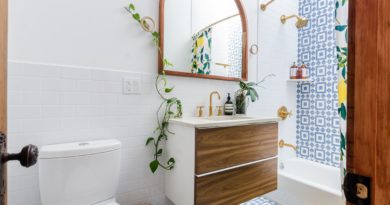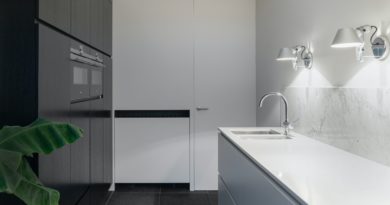Teak vs. Bamboo Shower Seat: Which One Is a Better Choice?
**Articles may contain links that I earn compensation for if clicked and you make a purchase. As an Amazon Associate, I earn from qualifying purchases. These earnings do not actually impact the price of the product or service.
Both bamboo and teak are amongst the most popular materials used for a good shower seat. This is mainly because these materials offer excellent water resistance. So, which one will be your ideal pick? Let us help you in figuring that out.
In this article, you will learn about all the pros and cons of choosing either type of shower seat so that you can make an informed pick.
Table of Contents
Prominent differences & similarities between Teak and Bamboo
The two materials differ in several aspects. However, they have similarities too. Have a look!
1. Number of species
A large number of species of a specific material could help you in making a perfect choice. From an array of types, you can get one that amazingly fulfills all your demands.
Therefore, if we talk about Teak and Bamboo, they also exist in different species. For example, you can find bamboo in over 1200 different kinds, which is more than any other type of wood. However, teak only exists in 3 different types. From these, only one type is suitable for making shower seats, and that is ‘Tectona Grandis.’
2. Eco-friendly
Both materials are environmentally friendly. As a result, they will not have any negative impact on our environment. Bamboo and teak are grown in plantations. This means that even if we chop them down, there will not be any side effects to the ecosystem. Moreover, bamboo is known to grow pretty quickly, with up to 12 inches a day!
3. Resistance
Bamboo is super-resistant to water in its pure form. So, if you use it as a shower seat, you will not have to worry about the material showing signs of damage due to contact with water. Also, the water will easily leave the bamboo shower seat before it gets a chance to cause any harm. However, you can chemically treat the bamboo shower seat to add resistance against mold, insects, and rot.
On the other hand, teak is naturally resistant not only to water but also to mold, rot, and insects. Due to this brilliant property, your teak shower seat’s lifespan will significantly improve, and you can comfortably use it for an extended period. You would not have to spend any extra cash on its chemical treatment as it offers natural resistance against various elements. Therefore, you can use it without any worries of mold or an insect attack.
4. Maintenance
We would say that neither of the materials is hard to maintain or clean. You will not have to spend hours and hours solely on the cleaning of bamboo or teak shower seats. Instead, you can get the process done within a short amount of time without wasting much energy.
Also, it is essential to note that a bamboo shower seat requires frequent maintenance and proper cleaning. On the other hand, with a teak shower seat, you would need maintenance only once in 3 to 6 months.
5. Durability
If we talk about the structure, there is little difference in that of bamboo and teak. Because teak shower seats are usually made with solid teak wood, they are known to provide a tough outlook and a robust structure.
Compared to that, bamboo shower seats are mostly created from laminated wood. Thus, it may not be able to offer as much toughness as teak shower seats. So, you can get a more durable shower seat if you pick teak.
Pros and Cons of Teak and Bamboo
Despite their similarities and difference, both teak and bamboo come with their own set of pros and cons. Let’s have a look.
Pros of Teak shower bench:
Moisture-resistant:
Teak can produce natural patina when it comes into contact with water. This patina will protect the material by forming a protective glaze against damage that may be caused by water exposure. Hence, it adds to the durability of the shower bench.
High durability:
Due to the brilliant resistance that teak offers against water, the lifespan of the material increases. As a result, you get higher durability.
Easy to clean:
All you would have to do is mix some soap and water and rub the teak shower bench to make it spotless.
Cons of Teak shower bench:
Stains:
To preserve the color and overall appearance of a teak shower bench, you would need special care for it. Because the bench is frequently exposed to moisture, watermarks may likely develop. This will give the bench an uneven color.
Frequent treatments:
Teak wood changes its color from natural honey to silver-gray with time as it produces patina. To prevent this, you would need to treat it frequently with oil treatments, or it will lose its color.
Pros of bamboo shower bench:
Less expensive:
Shower benches made of bamboo are less expensive than those made out of teak.
Stains:
Bamboo does not stain easily as compared to teak.
Eco-friendly:
Bamboo is more environmentally friendly as cultivating; it has no adverse effects on the environment.
Cons of bamboo shower bench:
Soft:
The wood may become soft and mushy as time passes.
Resistance:
You would need to chemically treat a bamboo shower bench to make it resistant against mold and insects.
Which is a smarter pick?
Well, now you know enough about both bamboo and teak to make an informed decision.
However, it depends on your needs and how much you are willing to spend on your shower bench. Apart from frequent cleaning, bamboo shower seats are cheaper and would make an ideal addition to your bathroom as they have a more elegant look.
On the other hand, teak will offer you higher resistance along with sturdy construction. Thus, it can be more durable and provide better quality.
So, it depends on you to decide which material best fits your needs.


